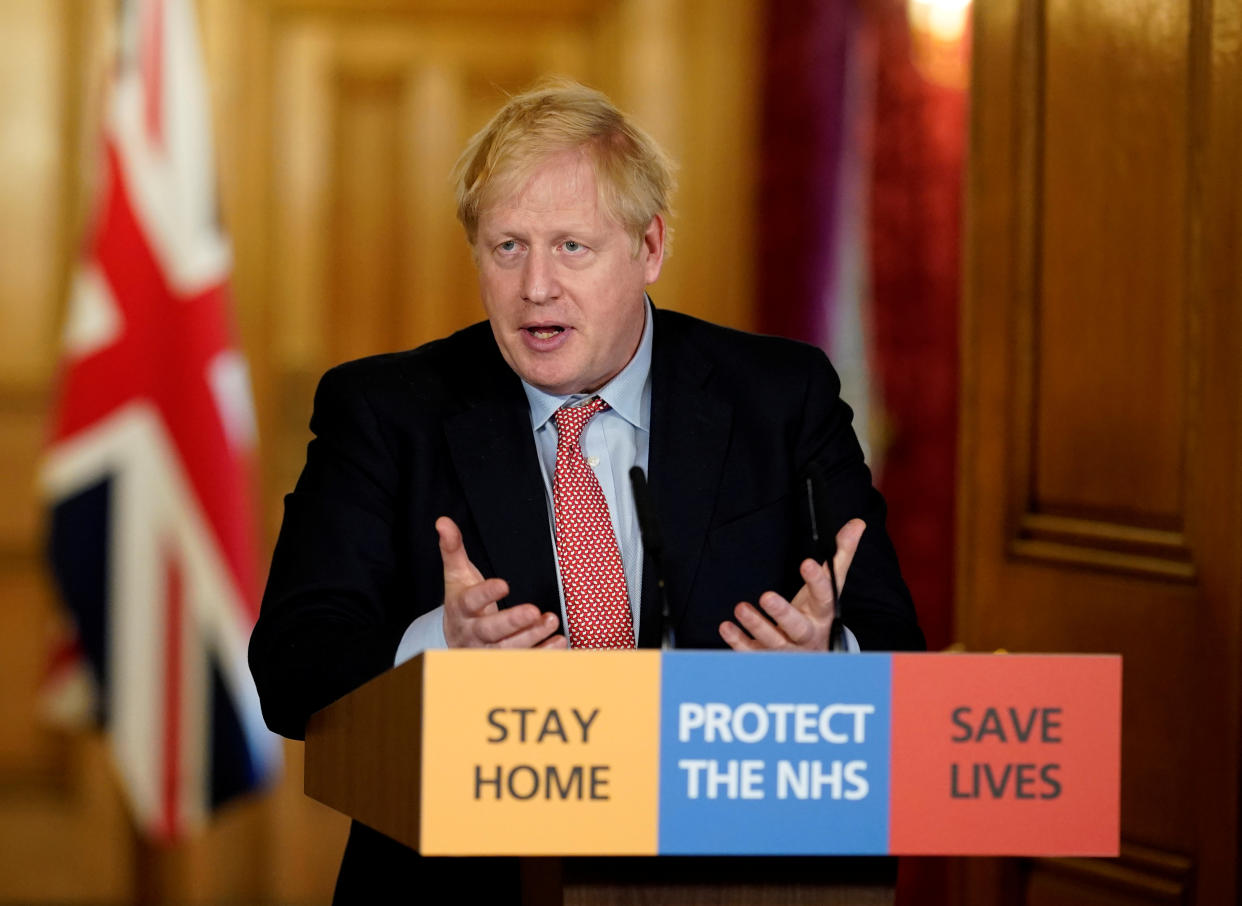Coronavirus: A timeline of what Boris Johnson has done to tackle the outbreak

When Boris Johnson planned how 2020 would look, it is highly unlikely that coronavirus was top of his list.
COVID-19 emerged in China at the beginning of the year, before spreading across the globe.
The first two cases in the UK were announced on 31 January, and the first death came on 5 March, when a woman in her 70s died after contracting the disease.
Since the outbreak of COVID-19, the prime minister has had to take a series of unprecedented steps that will go down in history.
Here is what Johnson has done, from social measures to economic safeguarding, since the outbreak of COVID-19:
Wednesday, 11 March
The government announces extra spending to help the UK cope with the impact of coronavirus.
In his first budget speech to the Commons, chancellor Rishi Sunak pledges £30bn of extra spending in a number of measures to protect the economy against coronavirus.
Latest coronavirus news, updates and advice
Live: Follow all the latest updates from the UK and around the world
Fact-checker: The number of COVID-19 cases in your local area
Explained: Symptoms, latest advice and how it compares to the flu
Thursday, 12 March
Johnson chairs a Cobra meeting on coronavirus.
In a press conference afterwards, he warns: “Many more families are going to lose loved ones before their time.”
Dubbing COVID-19 the “worst public health crisis for a generation”, he urges those with persistent coughs or fevers to stay at home for seven days.
Friday, 13 March
Johnson speaks to Italian prime minister Giuseppe Conte to express his solidarity and sympathy with Italy. He says the UK will support Italy in any way possible.
Johnson also suspends local government and mayoral elections for 12 months following guidance from the Electoral Commission.
Saturday, 14 March
The PM speaks to Donald Trump about the coronavirus pandemic and action being taken to stop the spread of the disease.
Sunday, 15 March
It is announced that Johnson will hold daily press briefings on the coronavirus crises.
The PM also speaks to Japanese prime minister Shinzo Abe on the phone as they update each other on their countries’ efforts to stop the virus spreading.

Monday, 16 March
Johnson holds the first of a series of daily press briefings on coronavirus.
In it, he urges everybody in the UK to work from home and avoid pubs and restaurants to ease pressure on the NHS, as well as advising people to avoid “non-essential” travel.
The PM adds he doesn’t think it will be necessary to use government powers to shut schools.
Tuesday 17 March
Johnson warns that the government’s “extreme” measures will go “further and faster” in the next few days.
The government also announces £330bn of government-backed loans and more than £20bn in tax cuts and grants for companies threatened with collapse – making it the biggest package of emergency support for business since the 2008 financial crash.
The Foreign & Commonwealth Office (FCO) also warns Britons against all non-essential travel abroad.
Wednesday, 18 March
Johnson announces that most schools across England will close from Friday, March 20, until further notice, though children of key workers will still be able to go to school.
Friday, 20 March
Building on his advice for people to avoid social settings, Johnson orders the closure of all pubs, cafes, bars, and restaurants.
Nightclubs, theatres, cinemas, gyms and leisure centres are also told to close.
The government also announces it will pay up to 80% per cent of wages for workers' at risk of being laid off.
Monday, 23 March
Johnson effectively puts the UK in ‘lockdown’, ordering people to stay at home and banning gatherings of more than two people, with police being given powers to disperse people and issue fines.
Shops are also ordered to close, and limits put on the number of times people can go out.
In a tweet, the PM says: “If you don’t follow these instructions, you are putting people’s lives at risk: You must stay at home to protect our NHS and save lives. #StayHomeSaveLives”

 Yahoo News
Yahoo News 


